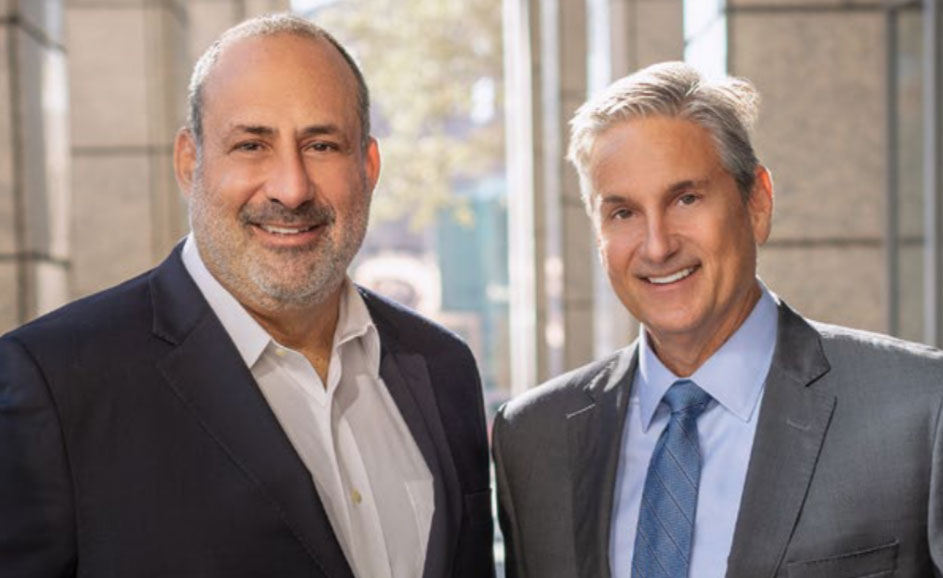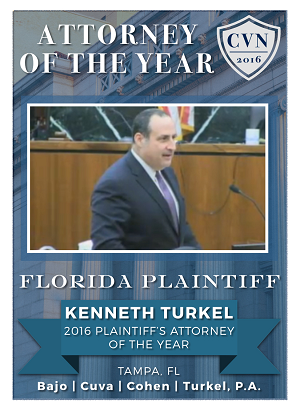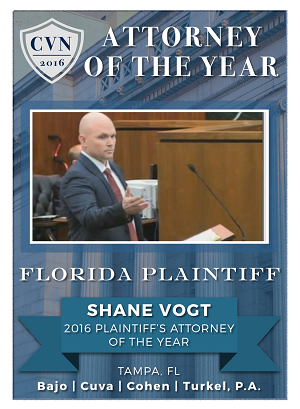





Just a few weeks before embarking on a 23-city arena tour, Kid Rock was hit with a lawsuit from the owners of the world’s oldest circus. According to Business Wire, Ringling Bros. and Barnum & Bailey Circus filed a lawsuit against the singer and Live Nation over using their trademarked term “The Greatest Show On Earth.”
Feld Entertainment, Inc., the owners of the circus, filed a lawsuit accusing Rock and his tour promoter of trademark dilution and infringement after the singer announced his upcoming “Greatest Show on Earth Tour” that is slated to kick off January 19 in Nashville, Tennessee.
“We have authorized licensees for Ringling Bros. and The Greatest Show On Earth, but Kid Rock is not one of them,” Lisa Joiner, General Counsel of Feld Entertainment said to BusinessWire. “Feld Entertainment was not contacted by Kid Rock (or anybody else on his behalf) regarding his use of Feld Entertainment’s trademark The Greatest Show On Earth.”
Now, just eight days before his first show, Kid Rock has updated the name of his tour on his website. What once was The Greatest Show On Earth Tour is now the American Rock N Roll Tour, named after another one of his songs from his most recent record Sweet Southern Sugar.
Rock submitted a sworn declaration to the court, saying, “While I firmly believe that I am entitled under the First Amendment to name my Tour after my song. I have changed the Tour name because I do not want this lawsuit to distract me or my fans from focusing on what is important in my upcoming Tour—my music.“
According to Amplify, Kid Rock’s attorney, Kenneth G. Turkel, defended his wanting to use the title of his song “Greatest Show On Earth” as the name of his tour, saying it “boasts about Kid Rock’s ability to perform the greatest fu**cking show on Earth.“
Even though Rock changed the name of his tour, Feld Entertainment says they are still going through with the lawsuit. “The song and video may not violate the trademark because it falls into a different class of goods and services,” a Feld Entertainment representative said, but they will continue with the suit for damages and lawyer fees.

Warner Bros. can’t escape Incarcerated Entertainment’s lawsuit that claims ‘War Dogs’ was marketed as a true story when it isn’t one.
Cast and crew saying or implying that War Dogsis a “true story” is enough to keep a false advertisement lawsuit against Warner Bros. alive, a Florida federal judge ruled Wednesday.
Efraim Diveroli, a former arms dealer portrayed by Jonah Hill in the 2016 film, is suing Warners for false advertising and unfair competition, among other claims.
Instead of optioning Diveroli’s manuscript, Once a Gun Runner, Warner Bros. enlisted Guy Lawson, a Rolling Stone writer who had interviewed him in prison and written a magazine feature that was expanded into a book. The ex-con takes issue with how he was portrayed and how the film was promoted.
“The gravamen of the Amended Complaint is that Warner grossed more than $85 million by promoting War Dogs as Diveroli’s ‘true story’ when it was not the true story,” writes U.S. District Judge Mary Scriven. “The Amended Complaint identifies a number of allegedly false advertisements, including statements in movie trailers, social media posts, and promotional interviews with War Dogs’ director, Todd Phillips, screenwriter Stephen Chin, and stars Jonah Hill, Miles Teller, and Bradley Cooper.”
Warners, meanwhile, argued that the statements regarding the truth of the story aren’t actionable because they’re protected by the First Amendment.
Scriven found that Diveroli plausibly alleged in his amended complaint that the comments are “commercial speech” and therefore subject to the Lanham Act, which prohibits false advertising in connection with commercial advertising or promotion. The judge found that the statements were promotional, referred to a specific product and that Warners had an economic motivation for making them.
“Warner knew that representing the story as ‘true’ would induce consumers to see War Dogs,” writes Scriven. “Although movies are works of artistic expression and must be protected, ‘they are also sold in the commercial marketplace like other more utilitarian products, making the danger of consumer deception a legitimate concern that warrants some government regulation.’”
The studio also argued that Diveroli failed to allege facts necessary to state a false advertising claim, but Scriven disagrees, noting that, while Warner Bros. is right to insist the statements be considered in their full context, the argument is not well-suited to a motion to dismiss.
“[A]part from advancing that argument, Warner neglects to address the relevant question: whether the statements, read in their full context, falsely or misleadingly portray War Dogs as a true story,” writes Scriven. “Warner implies that they do not, but that conclusion calls for a fact-intensive inquiry and that the Court draw inferences in Warner’s favor, neither of which is appropriate on a motion to dismiss.”
The decision isn’t a total loss for the studio, though. The judge found that allegations involving the War Dogs website and Facebook page and comments Lawson made while promoting his own book “are not, in and of themselves, actionable.” (The full order.)

A University of South Florida football player kicked off the team after he was accused of rape has filed a federal discrimination suit against the university.
Charges against Kevaughn Dingle, 22, were dropped by the Hillsborough State Attorney’s Office. But Dingle said in the lawsuit that his arrest by campus police in November 2017, his expulsion and the resulting news coverage “destroyed” his life.
According to the suit, filed Dec. 8 in U.S. District Court in Tampa, USF “rushed to a judgment” in the case for a number of reasons — the emergence at the time of the “Me Too” women’s rights movement, mistrust toward Black men, flawed investigative and judicial processes, internal bias in favor of female accusers and embarrassment over a prior USF assault case.
“White students accused of the same conduct violations as (Dingle) were provided less severe sanctions, subject to more thorough and time-intensive investigations, and provided due process during the investigation and hearing process,” the lawsuit stated.
Dingle insisted to investigators that his sexual encounter with another student, identified in the lawsuit as Jane Roe, was consensual, the lawsuit said. There were “outrageous inconsistencies” in the version of events she gave investigators, the lawsuit said.
Police said they had “developed sufficient cause” to arrest Dingle on a charge of sexual battery. But the State Attorney’s Office disagreed, deciding not to pursue charges against Dingle because of a lack of criminal evidence, the lawsuit said.
The office could not be reached for comment Tuesday.
USF never issued a statement after the charges were dropped, the lawsuit said. The university will have no comment on the pending litigation, spokesperson Althea Johnson said Tuesday.
Neither Dingle nor his attorneys, Kenneth G. Turkel and Anthony J. Severino of Tampa, could be reached for comment Tuesday.
The Pembroke Pines native released a statement on Twitter in 2018 maintaining his innocence and criticizing USF.
“False accusations hurt the real victims of sex crimes,” Dingle wrote. “The accused deserves to have an unbiased investigation and a real chance to defend himself. The State Attorney’s Office gave me both of those things, but USF did not.”
Dingle and Roe got together at USF’s on-campus Holly Apartments on Nov. 17, 2017, after having a number of conversations about having sex, the lawsuit said. Earlier in the week, they had met, exchanged Snapchat usernames and decided to meet at Dingle’s dorm room after Roe got out of class one day.
Dingle, 18 at the time, was arrested the same day and an internal investigation was launched by the university. It concluded Dec. 17 with the determination that Dingle broke USF rules and would be expelled.
Still, Dingle was forced to pay for on-campus housing — even after the criminal charges were dropped — in order to have his transcripts released to other universities, the lawsuit said. Up until the arrest, his housing costs had been paid through a football scholarship, the lawsuit said.
Dingle didn’t land another Division I college football scholarship even though he had been widely recruited while playing in high school in South Florida, the lawsuit said.
He went on to play football with Garden City Community College in Kansas and with Mississippi Valley State University, according to the schools’ social media pages.

Courtroom View Network on Dec 22, 2016 10:56:49 AM | Read Original Article
Billions of dollars were at stake in CVN-covered trials throughout Florida in 2016. However, the two lawyers who earn this year’s title as CVN Florida Plaintiff’s Attorneys of the Year spearheaded a win in a landmark trial over celebrity privacy that ultimately toppled a media giant.
CVN Florida Plaintiff’s Attorneys of 2016
Kenneth Turkel and Shane Vogt
The trial: Bollea v. Gawker Media
The verdict: Jurors awarded Terry Bollea $140.1 million, including $25 million in punitives, in his invasion of privacy suit against Gawker Media, its founder, and its former editor.
The details: Terry Bollea, better known as wrestling superstar Hulk Hogan, sued online media empire Gawker Media, claiming the company invaded his privacy and damaged his reputation when it published a clip of a sex video taken without Bollea’s knowledge by a friend of the wrestler’s. Gawker, which received the tape from an anonymous source and which it published with commentary by editor A.J. Daulerio, claimed the video was newsworthy based on Bollea’s celebrity status and his public discussion of his sex life.
The trial focused on standards of journalism and Gawker’s own business goals, with Vogt portraying Gawker founder Nick Denton as a mogul obsessed with driving viewers to his sites at any cost. “They knew it was wrong, they knew it was an invasion of privacy, they told other people and they did it anyway,” Vogt said. “We will prove they crossed the line.”
In closing statements of the punitive phase, Turkel told jurors the trial would serve as notice to other media sites regarding the limits of their coverage. “You send a message, you make a statement; that statement is ‘We’re going to draw the line,’” Turkel said. “Literally, you draw the line at the publication, without consent, of a private act accorded in a private bedroom.”
The trial and its stunning verdict made headlines nationwide and ultimately forced Gawker into bankruptcy. The case launched discussions on journalistic ethics, celebrity rights to privacy, and, when it was discovered PayPal co-founder Peter Thiel bankrolled the suit after Gawker allegedly outed him in a publication, the role the wealthy play in shaping media coverage.
But the landmark verdict itself was driven by the courtroom work of Turkel and Vogt. Their win in one of the country’s biggest trials of 2016 earns them Florida Plaintiff’s Attorney of the Year honors.



“Do you think the media can do whatever they want?” asked Hogan’s attorney in closing arguments.
The time has nearly come for a verdict in the first-ever trial pitting a celebrity against a media organization for the posting of a sex tape. The proceedings represent a probing of newsworthiness and whether the press can be held to maintain a standard of decency. More than three and a half years since Gawker published a post titled, “Even For A Minute, Watching Hulk Hogan Have Sex In A Canopy Bed Is Not Safe For Work But Watch It Anyway,” jury deliberations began after Hogan and Gawker gave a six-member jury in a Florida courtroom their closing arguments. These jurors began deliberations without having yet seen the sex tape in question.
Hogan (real name: Terry Bollea) contends that a less-than-two-minute excerpt of a 30-minute video, showing the famous wrestler sleeping with Heather Cole, then the wife of his best friend Bubba the Love Sponge (a radio host born Todd Clem), was an invasion of privacy, illegal wiretapping, a violation of the right of publicity and inflicted emotional distress. In weighing Hogan’s claims, the jury has been instructed to consider whether the video was highly offensive and was outside the bounds of human decency, causing (purposely or by reckless disregard) Hogan to experience shame and embarrassment. The jury will also consider whether Hogan had a reasonable expectation of privacy and whether Hogan’s name and likeness was used in a commercial purpose. If Hogan has proven the elements of his claims, the jury will also take up Gawker‘s defense — that the publishing of the video is protected by the First Amendment because it related to a public concern, meaning it was “newsworthy.”
Before closing arguments began, Pinellas County Judge Pamela Campbell noted the line between free speech and unfair intrusion, telling the jury they’d have to consider what “ceases to be the giving of legitimate information to which the public is entitled and becomes a morbid and sensational prying into private lives for its own sake.”
Ken Turkel gave Hogan’s summary of the case.